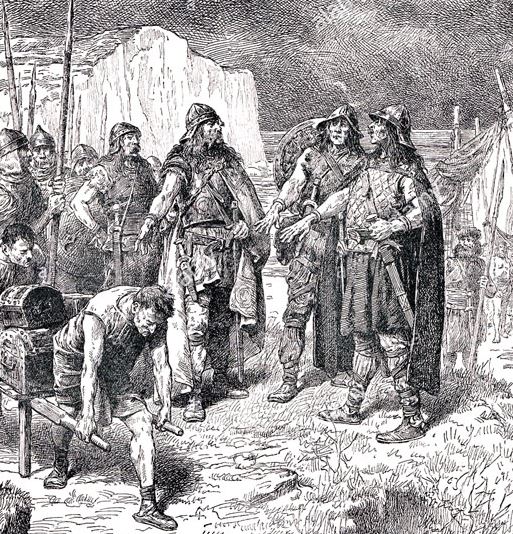The Angles were a Germanic tribe that played a crucial role in the early medieval history of Europe. Originating from what is now Denmark and northern Germany, they were one of the key groups involved in the migration and settlement of Britain during the early Middle Ages. This detailed article explores the history, culture, and impact of the Angles, providing an in-depth look at their significance in European history.
Historical Background
Origins and Early History
The Angles were part of the larger group of Germanic tribes that lived in the region of present-day Denmark and northern Germany. They, along with the Saxons and Jutes, were known for their seafaring and warrior culture. The name “Angles” is derived from their traditional homeland in the Anglia region, which is located in modern-day Schleswig-Holstein.
Migration to Britain
In the 5th and 6th centuries, following the decline of the Roman Empire, the Angles, along with other Germanic tribes, began migrating to Britain. This period of migration is often referred to as the Anglo-Saxon settlement of Britain. The Angles settled primarily in the northern and central parts of Britain, with their presence having a lasting impact on the region.
Settlement and Influence
Kingdoms and Territories
The Angles established several kingdoms in Britain, including:
- Northumbria: Formed from the merger of the kingdoms of Bernicia and Deira, Northumbria became one of the most powerful Anglo-Saxon kingdoms. The influence of the Angles in Northumbria was profound, contributing to its development as a major cultural and political center.
- Mercia: Located in the central region of Britain, Mercia was another important kingdom influenced by the Angles. It played a significant role in the early medieval period, both politically and economically.
Cultural and Linguistic Impact
- Language: The Angles contributed significantly to the development of Old English. The language of the Angles, along with that of the Saxons and Jutes, formed the basis of what would become the English language. Many place names, personal names, and linguistic features in modern English can be traced back to the Angles.
- Culture: The Angles, like other Germanic tribes, had a rich oral tradition, including epic poetry, laws, and customs. Their influence on British culture is evident in various aspects, including legal traditions, social structures, and artistic expressions.
Historical Records and Sources
Primary Sources
Historical records about the Angles come from a variety of sources, including:
- Bede’s Ecclesiastical History: Written by the Venerable Bede in the 8th century, this work provides a comprehensive account of the early history of Britain, including the arrival and settlement of the Angles.
- Anglo-Saxon Chronicle: This historical record provides valuable information about the history of the Anglo-Saxons, including events related to the Angles.
Archaeological Evidence
Archaeological findings, such as artifacts, inscriptions, and settlement remains, offer insights into the lives and culture of the Angles. These findings help historians and archaeologists piece together the history of the Angles and their impact on Britain.
Legacy and Impact
Integration into British Society
The Angles, along with the Saxons and Jutes, eventually merged with the local population of Britain, contributing to the formation of the Anglo-Saxon identity. Their influence is evident in the cultural and linguistic heritage of England.
Historical Significance
The Angles played a crucial role in shaping the early medieval history of Britain. Their migration and settlement were key factors in the development of the English language and culture. The legacy of the Angles is still felt today, both in the historical and cultural context of England.
The Angles were a significant Germanic tribe whose migration and settlement in Britain had a lasting impact on the region. Their contributions to language, culture, and history have shaped the development of England and its heritage. Understanding the history and influence of the Angles provides valuable insights into the early medieval period and the formation of modern British society.




